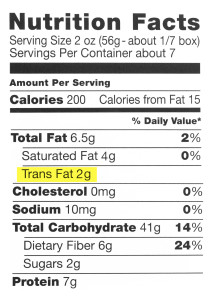Want to Communicate with Impact? Eliminate Those Non-Nutritive Filler Words
A few weeks after giving this interview, Caroline Kennedy ended her 2008 campaign for U.S. Senate. Her performance was disparaged as not befitting the level of professionalism and poise required in leadership.
The culprit? Filler words.
In fact, many professional speech patterns (sometimes my own included) are littered with filler words. My dad was a professional communications coach, so I heard about my filler words at an early age. I’ve gone through the “um,” “ah,” “like,” “you know,” “I guess” and “I don’t know” phases. During each, my dad would parrot the word or phrase back to me when he heard it. Out of love, of course.

The fad du jour to which I’ve succumbed is to insert “sort of” to qualify my statements. If you don’t know what I mean, listen to an intellectually and/or culturally minded podcast like The New Yorker or HBR IdeaCast by Harvard Business Review and you’ll quickly notice it. Even Katie Couric, the professional news personality, was interviewed on the IdeaCast saying:
Social media and technology have kind of blown wide open the notion of managing one’s own image….People are craving authenticity. They are craving this sort of natural interaction.
Maybe Katie’s right. Perhaps these trendy filler words make us sound more natural and authentic rather than rigid and polished. Or maybe they are qualifiers in an age where many people seem to think points of view are relative. When it appears “that truth is always relative to some particular frame of reference, such as a language or a culture,” all perspectives are only “sort of” or “kind of” right.
Whatever the rationale, these qualifiers are filler, not substance. They rarely add value to our listeners. They only fill the space where we are not ready to speak with confidence. As a result, they reduce our credibility.
Embrace the Silence
The first step in minimizing your qualifiers to maximize your communication impact is to become aware of how and when you use fillers. Kind of, so, um, like. Listen for these filler words in your own speech patterns, and acknowledge their minimal value.
The second step is replacing them, and the best replacement for filler is: nothing. Don’t feel compelled to fill in those blank spaces or assume that adding in a “sort of” makes you more relatable. Using the non-nutritive filler word du jour doesn’t make you authentic. Speaking clearly and confidently does.
So are you, like, ready to sort of improve the way you communicate and connect with others?









Matt – love the post. My debate coach cured me of what we called “dead wood” in the 8th grade. He sat in the back of the room with a large bike horn that went off during our speeches every time an “and, um, ah, etc.” came out of our mouths!
Thanks Ann! What a memorable technique for removing the “dead wood”!